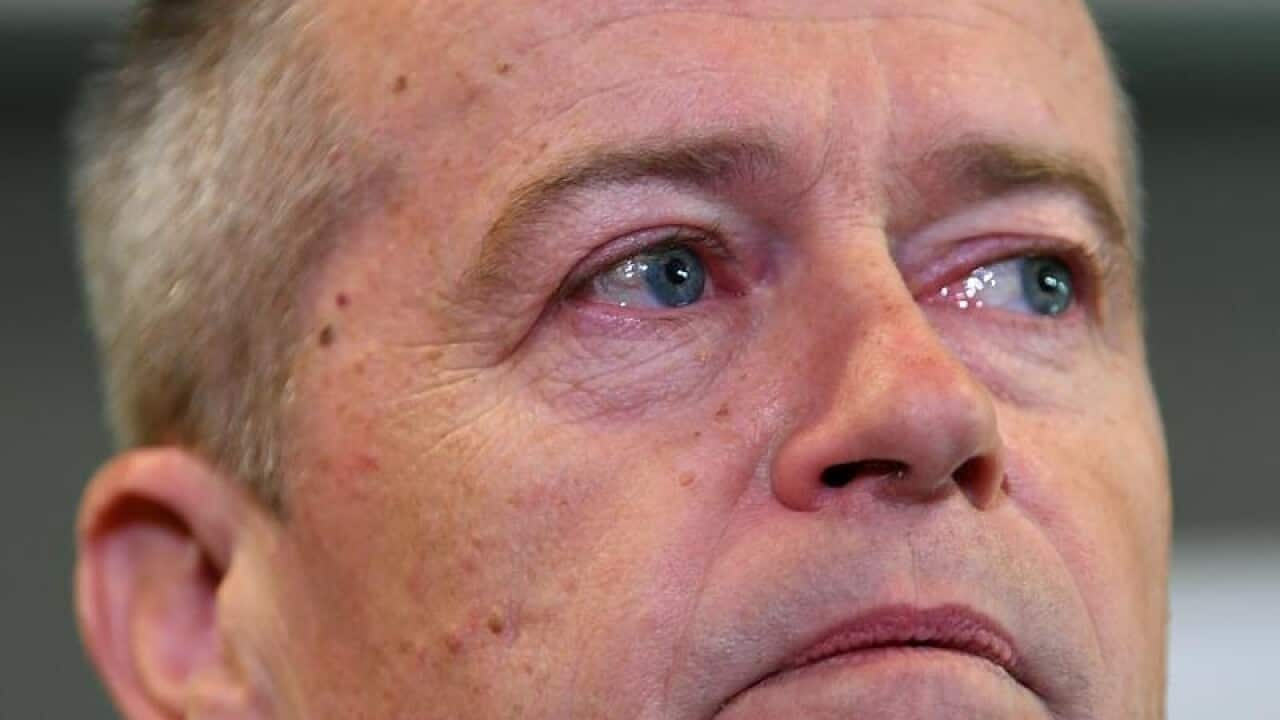Ann Shorten spent most of her life doing what she thought was best for others.
She shelved her dream of becoming a lawyer to take a teaching scholarship, taught for decades and raised her twin boys largely on her own.
In her 50s she finally returned to university to study law and took the bar, but faced discrimination because of her age, sex and social class and was given hardly any cases.
One of her sons is now poised to hold the nation's highest office and he wants to make sure no one else's dreams are dashed by similar barriers.
Labor leader Bill Shorten shared his mother's story several times during the election campaign to explain the driving force that propels him in politics.
"My mum has taught me that what matters in life isn't how rich you are or how poor you are. It's not what religion you worship... it doesn't matter about your gender," he said at an emotional press conference after the Daily Telegraph accused him of leaving out pertinent parts of Ann's story during a television appearance.
"It matters how hard you work - but if everyone got the same chance. Everyone deserves the same chance."
His raw 10-minute monologue, teetering on the verge of tears, 10 days out from the election delivered the most powerful moment of the campaign.
Opinion polls consistently show people don't like Shorten personally.
He is one of the ultimate political animals of his generation and Labor has worked hard this election to humanise him.
It is his second and, if unsuccessful, almost certainly his last bid for the top job.
Shorten, 52, has trade unions in his blood from both sides of his family. He grew up with union leaders yarning and plotting around the kitchen table.
At Melbourne's Xavier College he did the numbers for house elections and at Monash University political intrigue consumed him.
After graduating he had a short stint with a Labor law firm and then joined the ailing Australian Workers' Union. Within seven years he was the AWU's national secretary.
His rise in the union was relatively smooth. His rise in the faction-ridden Victorian party was rockier. But he steadily wrested control of the dominant Right. He was clearly a coming man, if still unknown outside Victoria.
That changed in April 2006 with the collapse at the Beaconsfield mine in northern Tasmania and the dramatic fortnight-long search and rescue effort for two trapped miners.
Shorten, as their union leader, rushed there and quickly became the public face of the operation. He did well by all concerned - the miners and their families, the community, mine safety, and himself.
The anniversary of that operation fell during this year's election campaign and Shorten was in touch with the two survivors while in Tasmania.
By 2007 he felt ready for a bigger stage. He decided on the safe federal Labor seat of Maribyrnong and there was nothing incumbent Bob Sercombe, though a frontbencher, could do to stop him.
Shorten went to Canberra in the election that swept Labor under Kevin Rudd back to power.
He soon moved upwards and over the course of the Rudd/Gillard governments held the financial services, workplace relations and education portfolios.
He also plotted, being a major figure in the overthrow of Rudd by Julia Gillard and then, in a desperate attempt to reduce the damage, the return of Rudd.
When the dust had settled and a rampant Tony Abbott was prime minister Shorten became opposition leader.
He's now held that job for more than 2000 days, a fact he likes to contrast with the three Liberal prime ministers he's faced.









